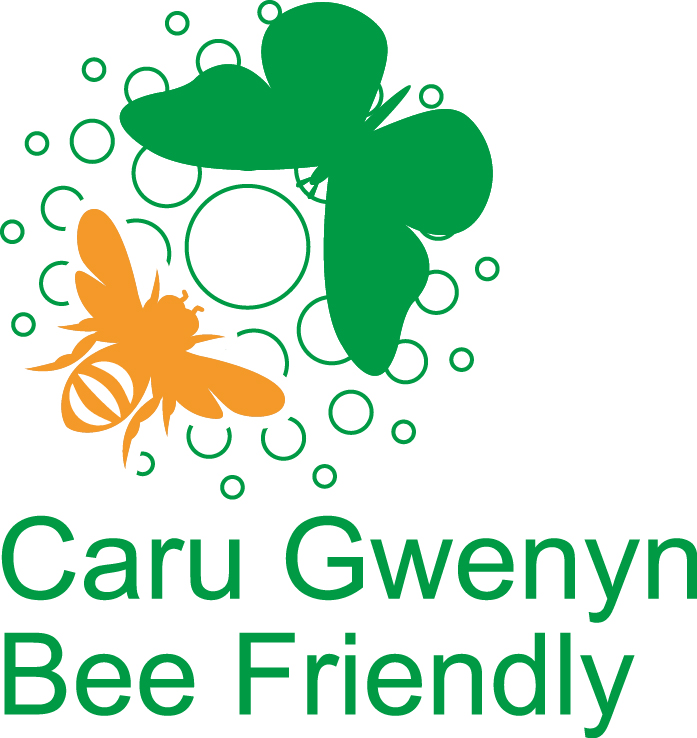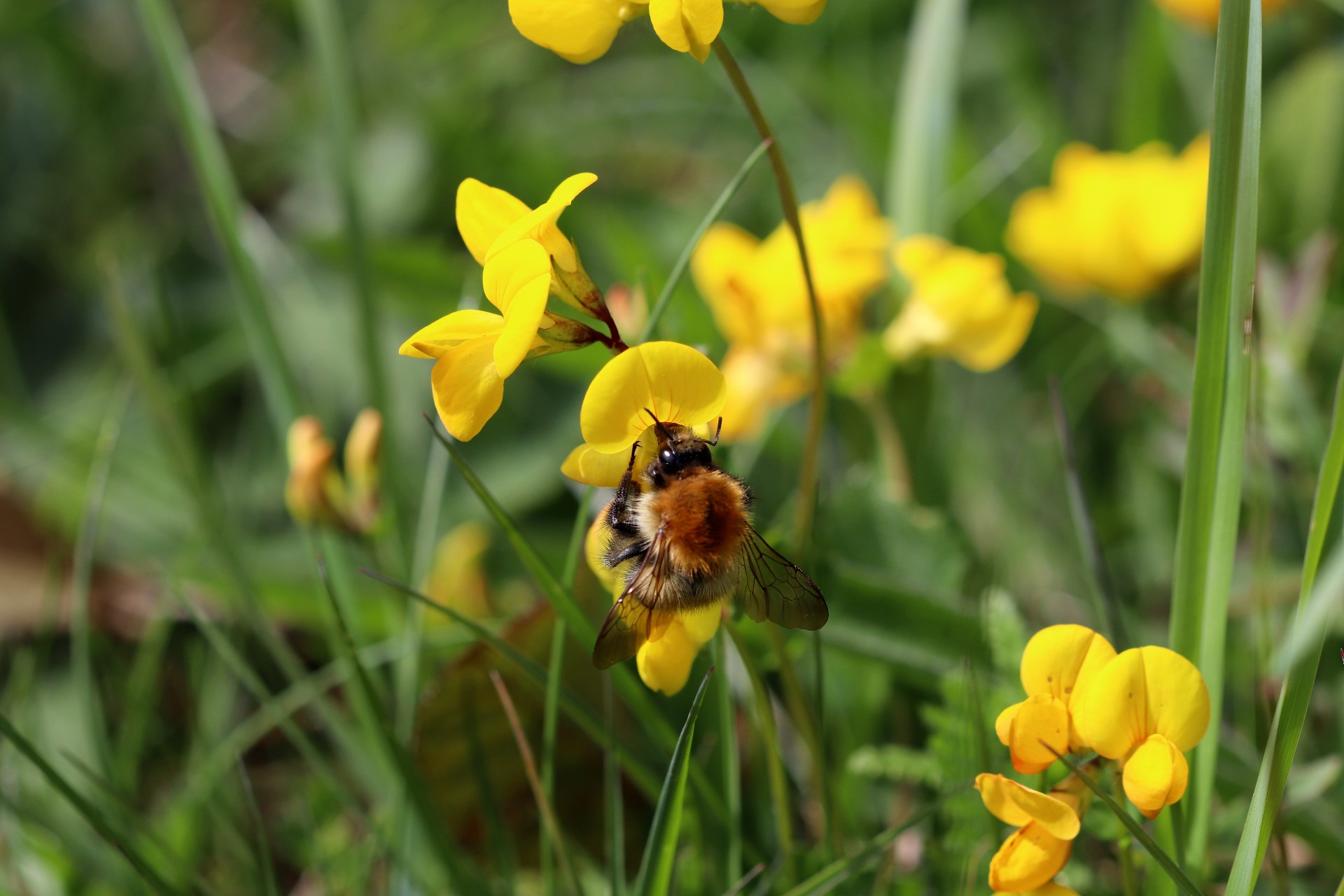

What is Bee Friendly?
Bee Friendly is an initiative to make Wales pollinator friendly supported by Welsh Government and the Wales Biodiversity Partnership. It is the first co-ordinated national scheme of its kind and encourages all organisations around Wales to get involved.
Although the scheme is called Bee Friendly, action is encouraged to help all of our UK pollinators, not just bees,
Pollinators include honeybees, bumble bees and solitary bees, some wasps, butterflies, moths, hoverflies, some beetles, and flies.


Due to a variety of factors, numbers have declined, and pollinators are now in trouble. Becoming Bee Friendly will give pollinators what they need to survive and thrive, and by working with others we can make Wales a pollinator friendly country.
Bee Friendly is divided into four themes. The first three themes reflect what pollinators need to thrive; an environment which has varied and nutritious food sources, water and nesting sites, and is free from harmful pesticides. The fourth theme reflects the importance of community engagement and inclusion.
The four themes are:
- Food – providing pollinator-friendly food sources in your area
- Five Star accommodation – providing places for insect pollinators to live
- Freedom from pesticides (this includes insecticides and herbicides) – committing to avoid chemicals that harm pollinators
- Fun – involving all the community and telling people why you are helping pollinators
Bee Friendly Gwent
Nature isn’t Neat have been working to support county councils within Gwent to become Bee Friendly.
Nature isn’t Neat can help your community organisation, school, town and community council or local nature garden achieve Bee Friendly status, for support, contact gwentpollinators@monmouthshire.gov.uk
Examples of pollinator initiatives within Gwent include;
- Using ‘Nature isn’t Neat’ approaches to grassland management to encourage wildflowers to set seed and provide corridors for pollinators
- Working with community groups and volunteers to manage open spaces for biodiversity
- Development of action plans to be used within all aspects of Council’s ground management activities
- Monitoring key sites to advise on management changes
- Creating habitat features for pollinators, including bee banks and bug hotels
- Reducing herbicide use
- Educating children through school visits
- Hosting events and citizen science days to increase public awareness of pollinators
Find out more
To find out more about the Bee Friendly scheme and what you can do to help, visit
Wales Biodiversity Partnership – Bee Friendly (biodiversitywales.org.uk)
This post is also available in: Welsh
